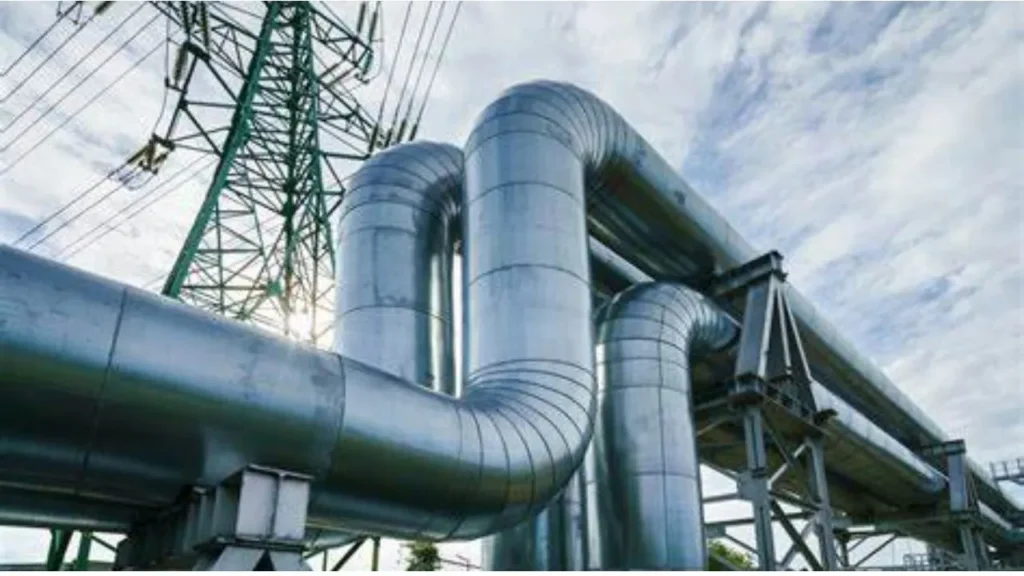
Pakistan’s Ministry of Energy has warned that without substantial investments in indigenous energy resources and energy efficiency measures, the nation could face a staggering annual expenditure of $60 billion on petroleum imports by 2044, a significant leap from the current $17.5 billion in FY2022-23.
Pakistan has recently approved work on work on an 80-kilometer portion of the Iran-Pakistan (IP) Gas Pipeline project, while the US has been expressing concern. The caretaker minister for Energy Muhammad Ali said this while briefing media persons in Islamabad.
When asked about the US sanctions on IP project, the minister said that he did not know what the US wanted regarding the IP project. However, he maintained that currently the work on 80-km will be carried out which will take one and a half years to complete. It will take time to connect it with the Iranian side for the supply of gas, he added.

Ali emphasized the crucial need to ensure the availability of indigenous fuel through enhanced domestic production and refining to achieve affordable and secure energy. It will help control the ballooning multi-billion dollar petroleum imports.
About efforts to address the challenge of ballooning petroleum import bill, he said the government introduced the Tight Gas (Exploration & Production) Policy 2024, focusing on an innovative pricing strategy to encourage efforts in exploring and producing unconventional hydrocarbon reserves.
The policy aims to invigorate existing exploration and Production (E&P) companies to intensify their exploration endeavors. Additionally, amendments to the Petroleum Exploration & Production Policy 2012 were made to adapt to changing market conditions and promote investment in the energy sector.
In a briefing, an official of the Petroleum Division said that efforts to revive dormant wells and reignite dormant discoveries have become vital strategies, with recent advancements emphasizing this approach. Notable achievements include the injection of 152 million cubic feet per day (mmcfd) of gas, the drilling of 22 wells, and the revelation of 6 new oil and gas findings.
Furthermore, on January 24, 2024, the government executed Petroleum Concession Agreements (PCAs) and Exploration Licences (ELs) for eight oil and gas blocks.
The Cabinet Committee on Energy (CCoE) recently approved additional enhancements to the current brownfield refining policy, aimed at encouraging local refineries to undertake upgrading projects. Incentives have been extended, including funds covering 27.5 percent of project costs and a tariff protection mechanism. These measures seek to provide financial and regulatory support to incentivize refinery upgrades and enhance overall sector efficiency.
The revised refining policy is anticipated to facilitate a $6.5 billion investment in upgrading five local refineries, leading to the production of environmentally friendly Euro-V-compliant fuels and a significant increase in local production capacity.
In efforts to bolster domestic gas production, Pakistan anticipates adding 280 million cubic feet per day (mmcfd) by the end of calendar year 2024. A comprehensive strategy has been devised to tap into various reserves across the nation, with key milestones already achieved.
Additionally, Pakistan’s energy sector is advancing with key projects underway, including the Iran-Pakistan Gas Pipeline Project (IP) and the Pak-Stream Gas Pipeline Project (PSGP) to control petroleum imports. Efforts are also ongoing to establish Strategic Underground Gas Storages (SUGS), enhancing energy security and infrastructure.
The recent greenlighting of recommendations by the Ministerial Oversight Committee signals a commitment to advancing energy projects, with a focus on the initial 80km segment of the pipeline within Pakistan. The project, managed by ISGS and funded through GIDC, is set to extend from the border to Gwadar in the first phase.
The ministry also mentioned recent developments in Pakistan’s mineral sector including significant discoveries following geophysical surveys and chemical analyses. A memorandum of understanding (MoU) worth $200 million has been signed between PMDC and Miracle Salt, USA, focusing on Pink Salt processing. Agreements with China, UAE, and Kuwait aim to attract investment in mineral exploration. Additionally, agreements for copper and rare earth metals mining with Kuwait have been pursued.